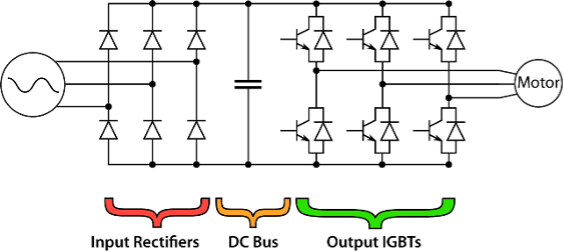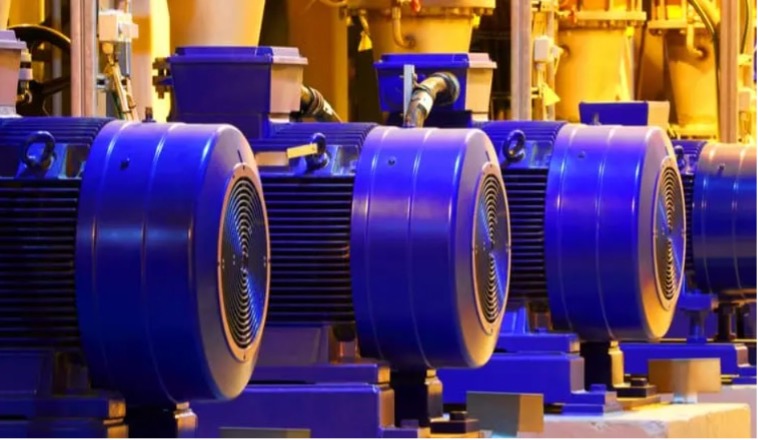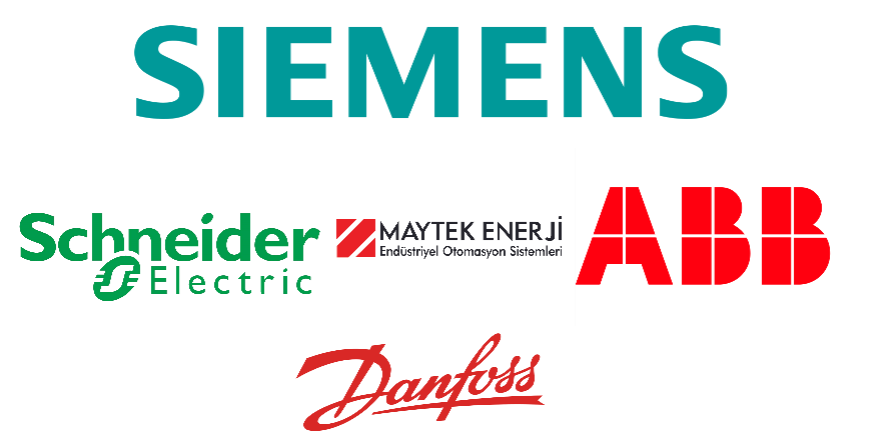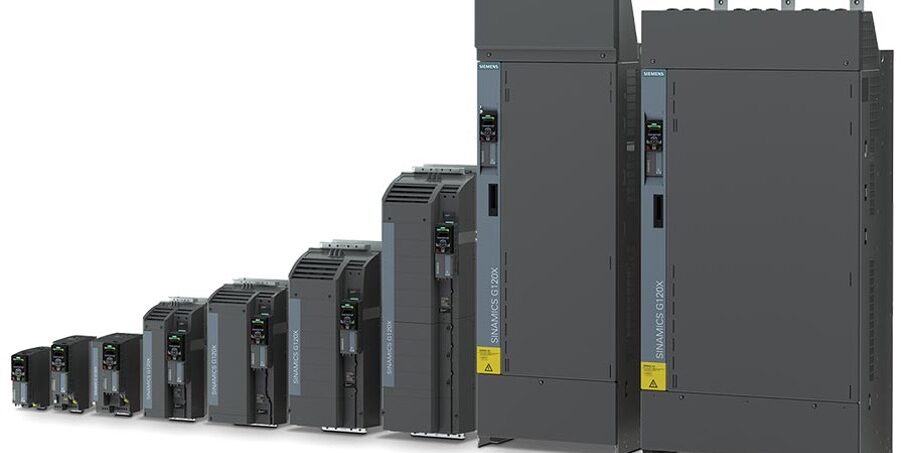Frequency converters are devices used to control the speed of electric motors. These devices enable adjusting the motor speed by altering the frequency and voltage of the electrical power supplied to alternating current (AC) motors. Here is the basic operational principle of frequency converters:
- Input Stage:
- In the input stage of frequency converters, energy is obtained from the alternating current (AC) power source. This AC power is converted into a controllable format by the converter.
- Rectification and Regulation:
- The AC energy from the input stage first goes through the rectification stage. In this stage, AC energy is rectified in the correct direction, resulting in a direct current (DC) signal.
- The generated DC signal then proceeds to the regulation stage. In this stage, fluctuations in the DC signal are corrected, and a desired level of DC voltage is obtained.

- Inverter Stage:
- The regulated DC signal enters the inverter stage. The inverter converts the DC signal back into alternating current (AC). However, this time, the frequency and voltage of the AC signal are controllable.
- Speed Control:
- The controllable AC signal generated by the inverter is supplied to the electric motor. This determines the speed of the motor because the motor speed is directly proportional to the AC frequency.
- The frequency converter can increase or decrease the AC frequency to control the motor speed, allowing the motor to operate at the desired speed.
- Control and Monitoring:
- Frequency converters are typically programmable and monitorable through a control panel or software.
- These control mechanisms monitor parameters such as motor speed, current, voltage, and others to optimize system performance and make adjustments when necessary.
These fundamental principles of frequency converters are widely used in industrial facilities to ensure precise control of motorized equipment and achieve energy savings. These devices provide flexibility and efficiency in production processes by enabling features such as soft start, stop, and speed control.

Frequency Converters In Industrial Facilities: The Key To Efficiency And Savings
Industrial facilities are constantly faced with the need to make continuous improvements in energy efficiency and optimize production processes. One essential tool contributing to these goals is frequency converters or inverters. These technological devices are used to optimize energy consumption in industrial facilities and make operations more efficient. Here’s a look at the benefits of using frequency converters in industrial facilities:
- Motor Speed Control:
- Frequency converters offer the capability to precisely control motor speed, allowing instant response to changing needs in production processes.
- Regulating motor speed ensures more efficient equipment operation and optimizes energy consumption.
- Energy Savings:
- By adjusting motor speed according to demand, frequency converters prevent unnecessary energy consumption. Motors often consume less energy when operated below the nominal speed.
- This energy savings helps reduce energy costs for businesses and minimizes their environmental impact.
- Soft Start and Stop:
- Frequency converters provide soft start and stop capabilities for motors. This reduces mechanical wear on equipment and prevents shock loads on the system.
- Soft start protects the electrical grid and minimizes energy fluctuations.
- Monitoring and Diagnostic Capabilities:
- Frequency converters have system monitoring and diagnostic features. These features allow facility managers to monitor system performance and identify potential issues in advance.
- Early warnings optimize maintenance processes and minimize unexpected downtimes.
- Adjustable Production Speed According to Demand:
- With frequency converters, production speed can be easily adjusted as production demands change. This provides a flexible production environment, allowing quick adaptation to customer requirements.
- Longevity and Reliability:
- Providing soft start and stop for motors reduces mechanical stress, extending the equipment’s lifespan.
- Frequency converters enhance overall system reliability and reduce maintenance costs.

Major Frequency Converter Manufacturers And Maytek Enerjı
Many major manufacturers specialize in frequency converters for industrial facilities. Among these manufacturers are:
- Siemens
- ABB
- Schneider Electric
- Danfoss
As Maytek Enerji, we successfully implement products from these major frequency converter manufacturers in the field of industrial facilities. With years of experience and our expert team, we offer robust solutions to maximize energy efficiency in your facilities.
For customized solutions for your frequency converter and energy management needs, and to get more information:
- Email: [email protected]
- Phone: +90 (312) 429 00 56
- Fax: +90 (312) 429 01 08
- WhatsApp: +90 (535) 104 18 66

